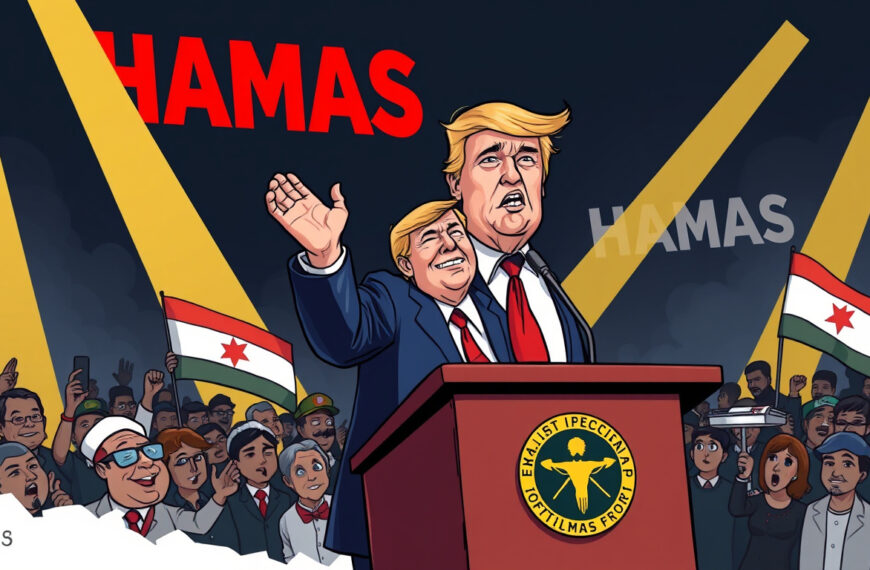In recent months, the battle against drug cartels and organized crime in the United States has intensified, with significant shifts in strategy by the federal government. This comprehensive approach, spearheaded by the Department of Justice (DOJ), seeks not only to dismantle the intricate networks of these criminal organizations but also to address the looming threats they pose to national security and public safety.
The "Zero Tons" Strategy
Central to this new offensive is the DOJ’s recently unveiled "Zero Tons" strategy, which aims for the total eradication of drug cartels and transnational criminals. The initiative specifically targets four major organized crime groups: the Venezuelan gang Tren de Aragua, the powerful Mexican cartels Cártel Jalisco Nueva Generación (CJNG) and the Sinaloa Cartel, and the Salvadoran gang MS-13. This strategy marks a profound escalation in the federal government’s approach to combatting these entities, aligning them with tactics typically reserved for domestic terrorism.
Expanding Legal Tools
The DOJ’s strategy encompasses a significant expansion of legal measures against cartel members. This includes fast-tracking terrorism and racketeering charges, which allows prosecutors to impose harsher penalties on individuals associated with these groups. Notably, the strategy advocates for capital punishment for those involved in severe crimes such as gang violence, human trafficking, and the distribution of fentanyl, a dangerously potent opioid that has significantly fueled the ongoing overdose crisis in America.
Such measures reflect a paradigm shift in how federal authorities perceive drug cartels—not merely as criminal organizations but as substantial threats requiring a robust counter-terrorism response.
Task Forces and Tactical Operations
Enforcement efforts have been energized by the establishment of specialized task forces. For instance, the Joint Task Force Vulcan, which has garnered attention for its successful operations against MS-13, is now targeting the Tren de Aragua gang. Federal agents are enhancing their capabilities by collaborating with international partners, applying pressure at various points in the cartels’ operational networks, and executing strategic arrests as part of integrated multi-state operations.
Recent reports highlighted the arrest of a hitman from the Gulf Cartel in Michigan, demonstrating the reach and relentless nature of these law enforcement initiatives. However, these actions have been met with violent responses from the cartels, including the alarming use of weaponized drones in conflicts with rival groups, marking a new chapter in organized crime’s technological escalation.
Challenges in Enforcement
Despite these aggressive strategies, law enforcement agencies are encountering significant roadblocks. Leaked intel surrounding planned Immigration and Customs Enforcement (ICE) raids—like those in Denver and Los Angeles—exemplifies the operational challenges they face. Such leaks put officers at risk, jeopardizing their missions and potentially leading to ambushes by cartel associates who receive warning of impending actions.
Furthermore, the status of cities like Los Angeles as sanctuary jurisdictions complicates these enforcement efforts, as local law enforcement typically cannot assist federal agents in apprehending undocumented immigrants. This dynamic introduces bureaucratic and logistical hurdles, necessitating a more strategic framing of federal immigration policies alongside cartel confrontation.
Conclusion: A Multifaceted Approach Needed
As the war against drug cartels escalates, the federal arsenal is increasingly equipped with strategies reflective of a severe and urgent response to organized crime. The "Zero Tons" strategy and associated legal reforms signify a clear commitment to not only dismantling criminal networks but doing so with the intent of protecting communities from the multifaceted threats they pose.
Moving forward, however, the effectiveness of these strategies will depend on continued cooperation among law enforcement agencies, vigilance against internal leaks, and a comprehensive understanding of the dynamics at play not only within the borders of the United States but also in the countries from which these criminal enterprises operate. The fight against drug cartels is far from over, and ongoing adaptation and innovation will be crucial in mitigating the violence and devastation they inflict.
Ready to get in the game and start making money on Pump.fun? DogWif Tools is the #1 memecoin sniper tool for becoming a Pump.fun millionaire. Get DogWif Tools today and become a memecoin dev!








